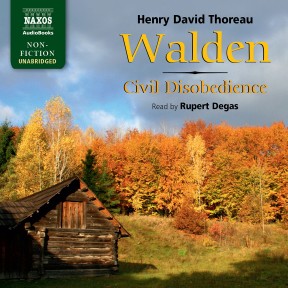The NAB Blog
Splendid Isolation: Lockdown Literature
By Anthony Anderson
11 May 2020
 That writers write in isolation is of little surprise… a state of solitude is a necessity for almost all writers. Jane Austen sat by the dining parlour windows of her house at Chawton, writing at her walnut table – the creak of the parlour door warning her of visitors so she could put away her manuscript. And, in addition to the necessity of money, Virginia Woolf suggested that writers need a room of their own. However, there is a marked difference between voluntary isolation and enforced imprisonment. But is lockdown really a boon to writers, providing them with the space and quiet, far from the madding crowd, in which they can hone their craft?
That writers write in isolation is of little surprise… a state of solitude is a necessity for almost all writers. Jane Austen sat by the dining parlour windows of her house at Chawton, writing at her walnut table – the creak of the parlour door warning her of visitors so she could put away her manuscript. And, in addition to the necessity of money, Virginia Woolf suggested that writers need a room of their own. However, there is a marked difference between voluntary isolation and enforced imprisonment. But is lockdown really a boon to writers, providing them with the space and quiet, far from the madding crowd, in which they can hone their craft?
Henry David Thoreau isolated himself in a single-room cabin for two years, and out of this voluntary quarantine the philosophical book Walden appeared in 1854. Unsurprisingly, Thoreau argues for the beauty of simplicity and nature, and against the ‘imprisonment’ of materialism. But it is telling that he did then return to ‘civilisation’ – and his period of isolation wasn’t completely devoid of human contact.
Thoreau’s detachment from society was voluntary. Writers living in the time of plague had less of a choice. Chaucer and the society in which he lived were affected by The Black Death, a plague that ravaged Europe in the mid-14th century, with much of his family being wiped out. Chaucer, particularly in his Canterbury Tales, was heavily influenced by Giovanni Boccaccio. Living in Florence (three-quarters of whose population perished) at the height of The Black Death, Boccaccio survived the plague which provided the setting for his Decameron, in which ten protagonists social distance themselves from the city. Not surprising then that plague features in both works – periodic outbreaks were pretty much a fact of life.
writers can never be fully isolated from the society in which they live
There were several outbreaks of the ‘black plague’ during Shakespeare’s lifetime which affected him both financially (London’s theatres were closed for several periods) and personally, most notably through the death of his only son Hamnet in 1596 (at that time a third of children didn’t survive to see their tenth birthday). He is thought to have written several plays during periods of self-isolation and there are several references to pestilence in his plays, not least Romeo and Juliet which contains the most memorable plague quotation in Shakespeare. On his death-bed Mercutio utters the words: ‘A plague on both your houses.’
Even when writing in isolation, writers can never be fully isolated from the society in which they live, or their past experiences.
It is not only disease which has forced writers to become isolated. Several writers have written their masterpieces from behind the bars of prison. It is likely that Cervantes started his masterpiece Don Quixote during his five-year imprisonment. He found himself in prison due to his financial difficulties, a problem that beset many writers including John Cleland who, somewhat incongruously, completed his erotic novel Fanny Hill from Fleet Prison… a far cry from the Hogarthian boudoir. Like Thoreau, Boethius used his isolation (in 523–524 he was awaiting his execution which, no doubt, concentrated his mind) to produce a reflective work in his The Consolation of Philosophy, his consolation residing in a higher power. Nearer to our own time is Oscar Wilde’s De Profundis, written in Reading Gaol, part love-letter and part heartfelt cry to a lover for whom Wilde had risked everything – and lost.
Currently households are isolating themselves together and this, too, has an impact on writers who are used to shutting themselves away with a computer. Being holed up with partners and children clearly makes it difficult to find the time and space in which to write. Perhaps they will have to resort to Jane Austen’s methodology, of grabbing ‘alone’ time whenever they can… before the door creaks once more.
« Previous entry • Latest Entry • The NAB Blog Archive • Next entry »